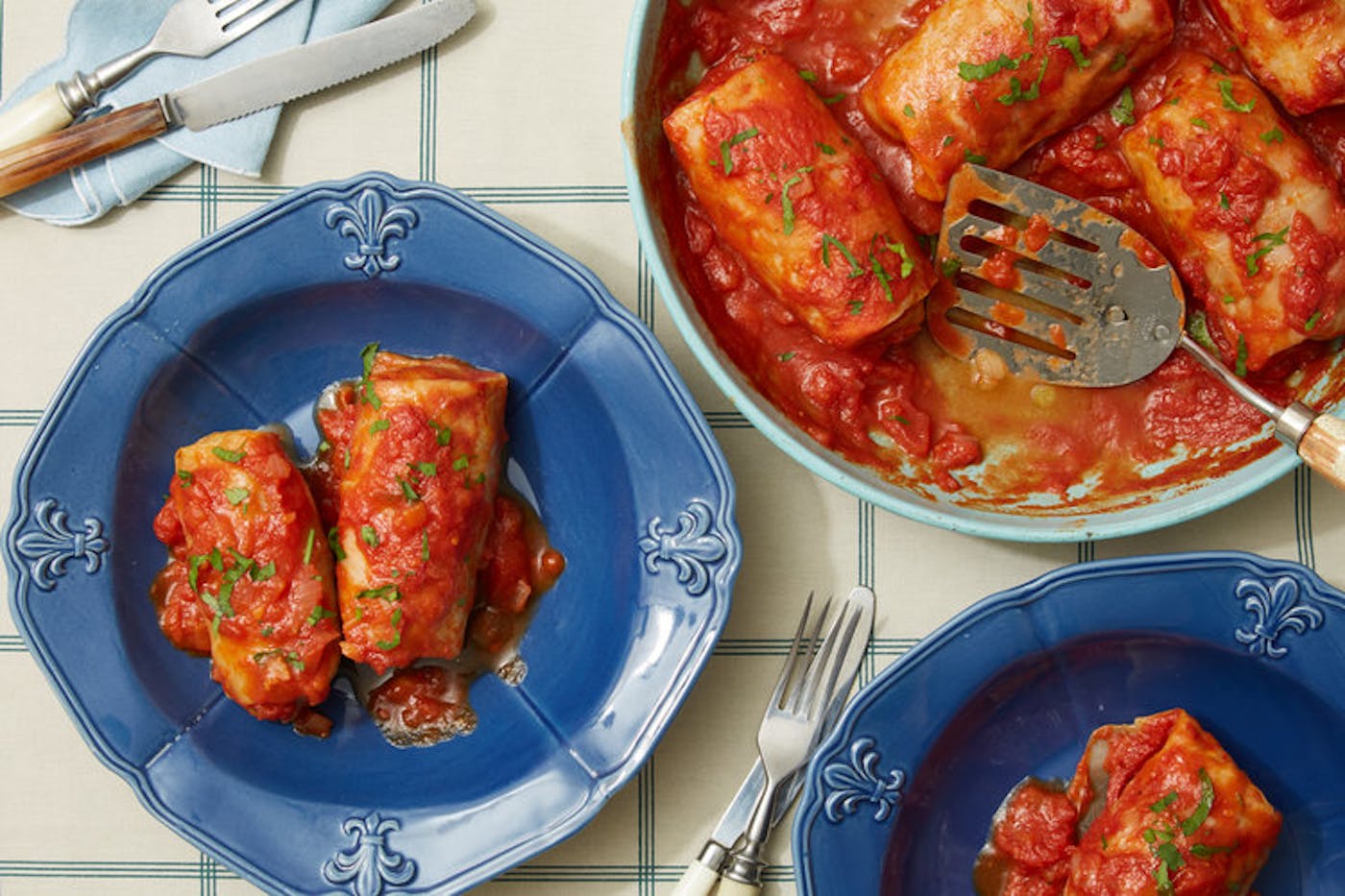For many Jewish cooks we’ve spoken to since we launched the Jewish Food Society, family recipes are almost intuited, learned by spending time in the kitchen at a grandmother or mother’s apron strings. But, for Arik and his daughter Dafna Bareket, recipes are transmitted in writing — and sometimes over WhatsApp. The collection of family recipes, which include cholent, homemade gefilte fish, and stuffed cabbage come from Arik’s Polish mother Pnina.
It wasn’t until Arik reached his 40s that he started to cook for the first time in his life. Driven to learn his mother’s recipes, he sat at her kitchen table as she cooked and dictated the directions to him and he wrote. A naval architect and engineer by training, his notes and cooking are precise.
Now 83, Arik has been making Pnina’s recipes for 40 years and still, Dafna says, he looks at his carefully written recipe every time he makes one of her dishes like this stuffed cabbage the two shared with us for our archive.
Neither Arik nor Dafna know where Pnina learned this recipe, but the flavors appear to come from her childhood in Vilnius, which was part of Poland when she was growing up. In 1935, in her early 20s, Pnina left Vilnius without her family to move to British Mandate Palestine with a Zionist group. Her family that stayed behind perished in the Holocaust. “She was the only survivor,” Dafna explains, and Pnina never spoke of them to Arik.
By the time Dafna was growing up in the 1980s and 90s, the recipes from savta Pnina, as she was known in the family, had already passed to Arik as Pnina became too old to make them. Her recipes were a part of his repertoire for Shabbat, never mid-week, cooking. “My mom always laughs at my dad,” Dafna says. “His cooking is a three day process. On the first day he needs to go to the market, on the second day he preps,” and on the third he cooks.
Savta Pnina’s recipes are for the dishes “I grew up hating. I wouldn’t touch these things,” Dafna explains. “I think, only at an older age, did I start to appreciate these recipes.” A vegetarian since she was 14, Dafna started to make her own renditions of Pnina’s cholent and stuffed cabbage as a young mom in Tel Aviv. Despite her father’s disapproval of her vegetarianism, she still likes to have Arik in the kitchen with her when she cooks to make sure the recipe is being made properly.
She moved to New York City a year ago, so today Arik’s involvement in her kitchen is largely virtual. “I constantly WhatsApp my dad” for Pnina’s stuffed cabbage recipe, Dafna says. He sends her back a photo of the recipe he wrote down 40 years ago sitting at Pnina’s kitchen table. “I’m just like him,” she adds. “Everytime, I look at the recipe.”


